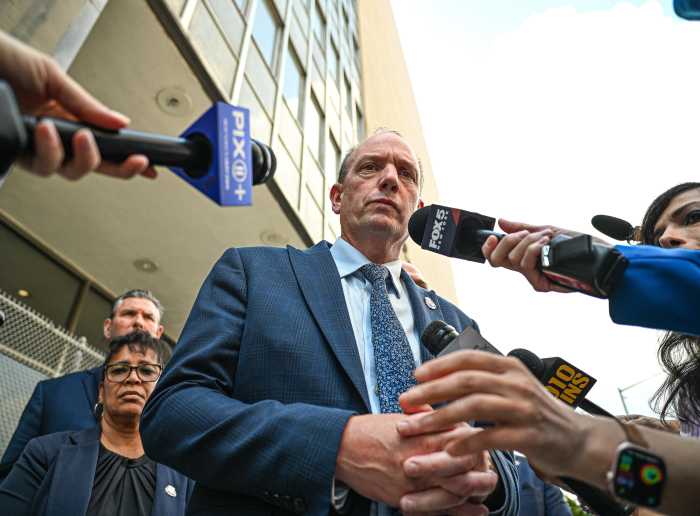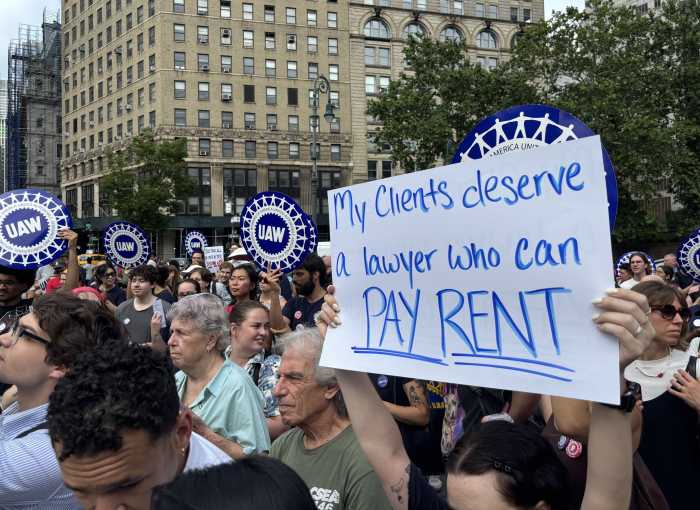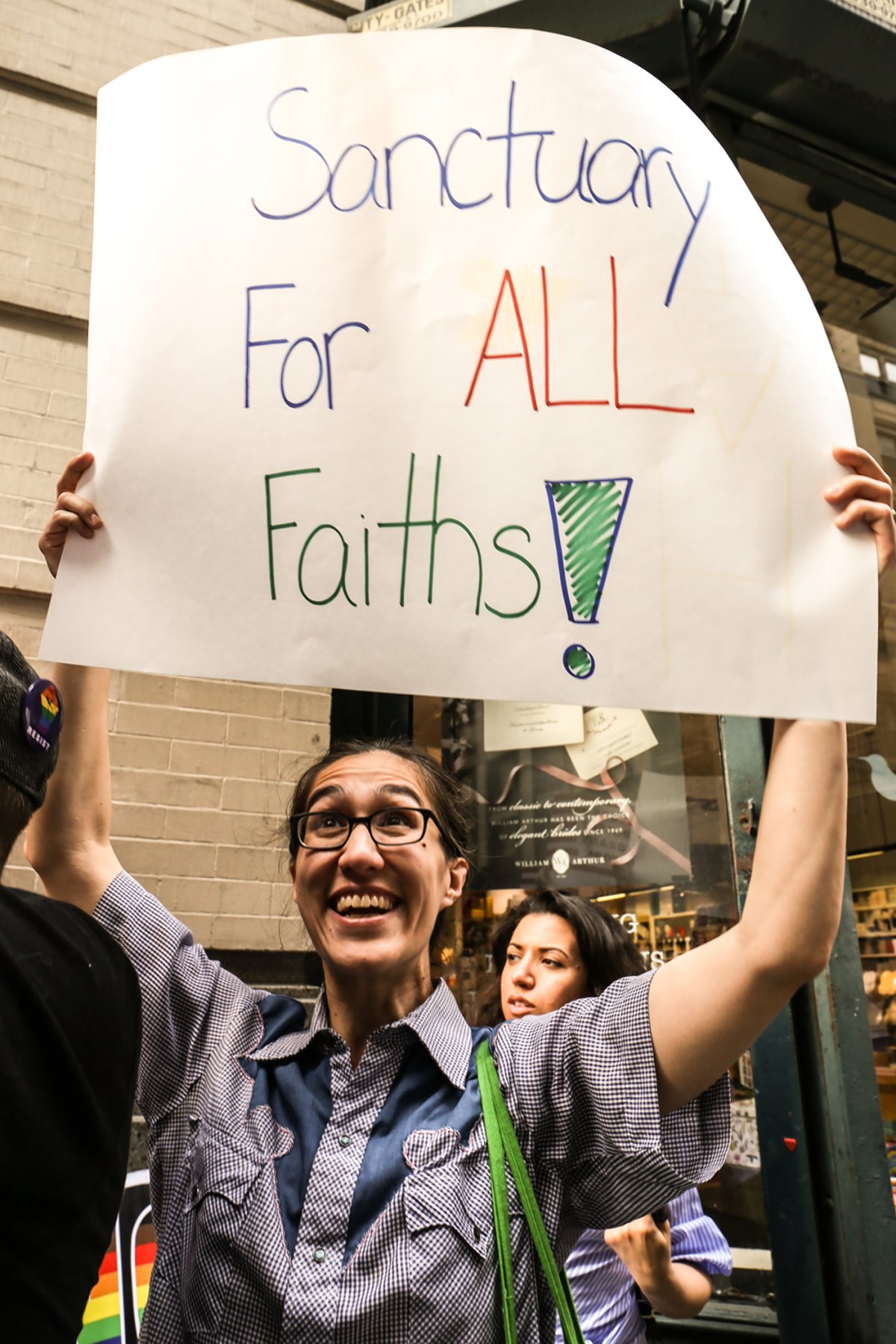
BY KARI LINDBERG | Almost 100 people of all ages rallied on the evening of Thurs., June 29, at the northern end of Union Square after the U.S. Department of State issued new travel guidelines earlier that day.
This followed the Supreme Court’s decision to enforce part of the president’s Jan. 25 executive order that placed a ban on refugees and invalidated visas from specific Muslim countries, including Iran, Syria, Libya, Sudan, Somalia and Yemen. The new travel guidelines implemented by the State Department allow people from the six majority-Muslim countries with “bona fide” family relations in America, such as parents or siblings, to get U.S visas, but they leave out grandparents, aunts, uncles and fiancés or fiancées.
The rally was hastily organized by the Council on Islamic-American Relations New York Chapter (CAIR-NY). Speakers included included Linda Sarsour, the high-profile Palestinian-American activist; Murad Awawdeh, director of political engagement at the New York Immigration Coalition; and Naz Ahmad, the staff attorney at CUNY School of Law’s Creating Law Enforcement Accountability and Responsibility (CLEAR).
Awawdeh opened the rally directly asking the question: “What does a bona fide relationship with the United States mean?” Awawdeh provided two opposing definitions: His own definition and the one that the State Department presented.
“To every ordinary individual, it would mean your grandmother, your grandfather, your fiancées, your cousins, all your relationships that are bona fide to you,” he said. “But clearly the State Department does not feel that way.”
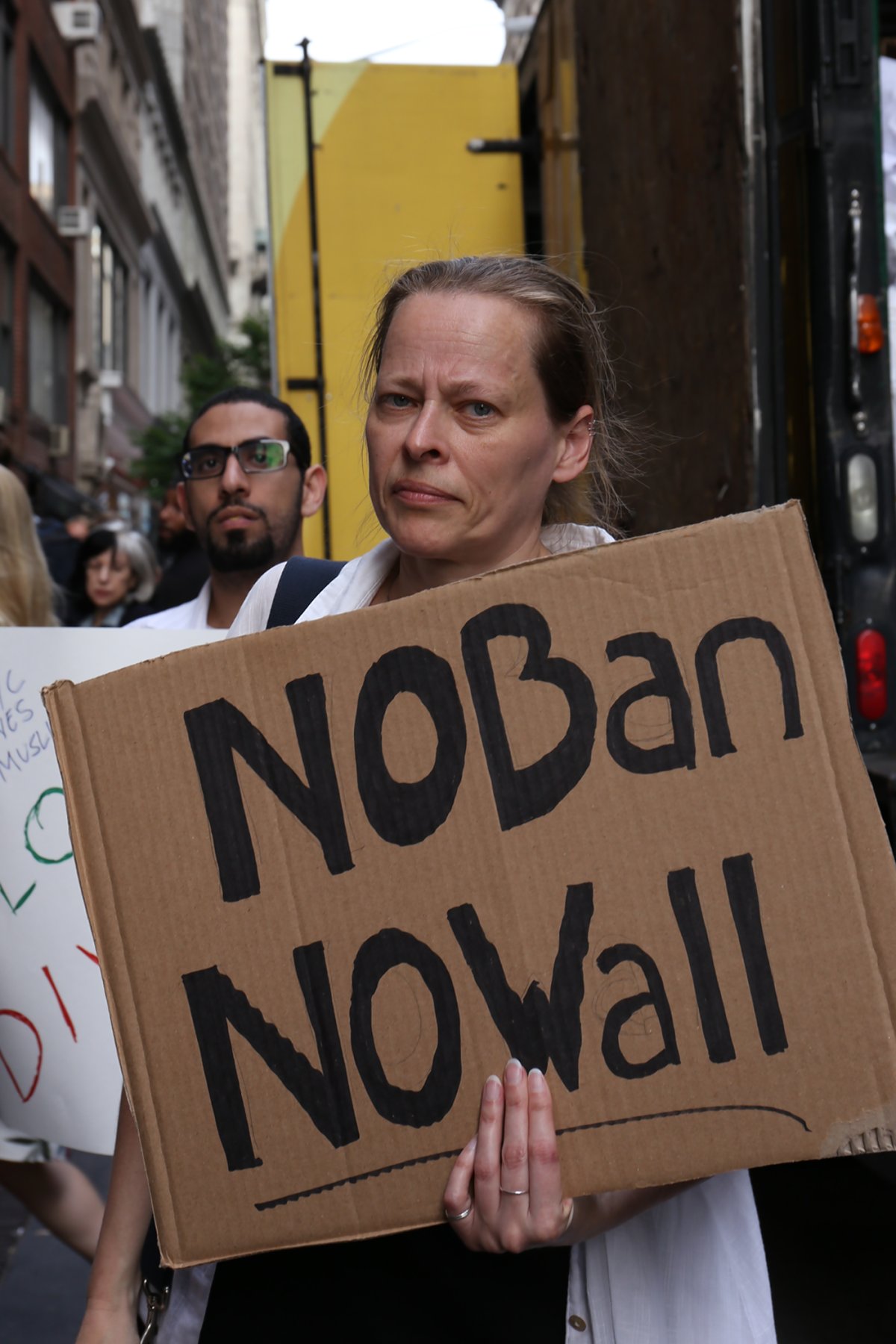
Awawdeh affirmed that the emergency response network comprised of the hundreds of activists, lawyers and supporters who congregated around airports following the president’s first “Muslim ban” back in January is still in place and ready to be mobilized.
“What we have been doing since the announcement is reactivating our ‘No Ban’ J.F.K. network, where we had over 1,000 attorneys come out and provide free legal services,” he said.
Emphasizing a need to connect with those individuals or with family members directly impacted, Awawdeh exclaimed to the crowd, “We have activated our network and anyone who may believe that they are at risk, please e-mail JFKneedalaywer@gmail.com or call the No Ban JFK Hotline number, 844-326-4940.”
Afar Nasher, executive director of CAIR-NY, denounced both the partial ban implemented by the U.S. Supreme Court and the travel guidelines set down by the State Department as un-American.
“This partially reinstated Muslim ban can’t stand,” Nasher said, “because it’s an affront to who we are, against our democratic values, against our American values.”
Compared to previous rallies, most notably the Washington Square Park rally held on the eve the president issued his first Muslim ban, the lack of local politicians this time gave the rally a much more grassroots feeling.
Signs of the rally’s hasty organizing included its last-minute location change from the originally planned Washington Square Park to Union Square and also is homemade signs: Some were made on loose-leaf paper, others created within minutes of receiving word the rally would be happening.
A speaker representing the Democratic Socialists of America assured the protests will continue.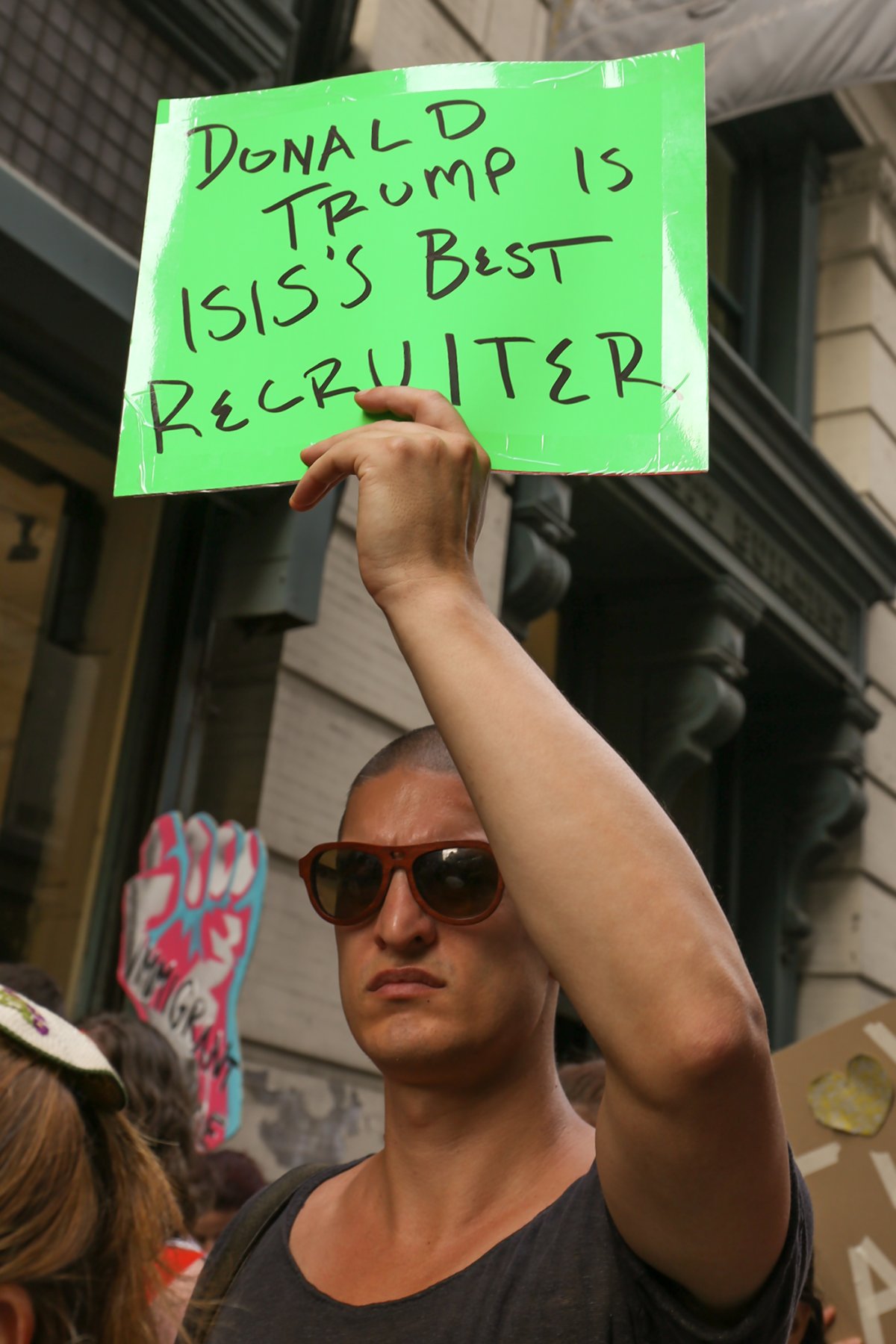
“It’s not so much that the rallies are different, but that they keep happening,” he said. “They’re still public, and they show that this is not something that the majority of New Yorkers condemn or are willing to accept.”
Solidarity, unity and support for all immigrants and those impacted by the State Department’s new travel guidelines regarding the six majority-Muslim countries were the unifying message. However, outside a town hall meeting at 18th St. and Fifth Ave. directly following the protest, two supporters of both the Muslim ban and the State Department’s travel guidelines held signs reading, “Back the Ban” and “Keep Syrians Out.”
On Wednesday, the Daily News reported that a new survey by Politico / Morning Consult found that most Americans — or 60 percent — now support Trump’s crackdown on travel from the six majority-Muslim countries. Unlike a previous poll, however, this one did not phrase the question by referring to Trump, saying the ban was one of his policies or using the term “travel ban.”




